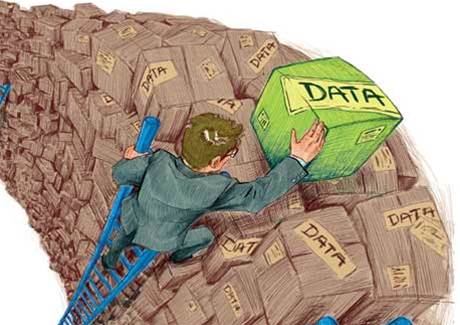Data caps on broadband connections are unnecessary and only exist to squeeze high profits out of a non-competitive ISP market, a United States public policy think tank has argued.

The New America Foundation said in a research paper that despite rapidly growning customer numbers and expanding rates of Internet traffic, the cost to deliver data to the network edge has "decreased at a greater pace than consumption".
The cost of network equipment such as routers and switches is also declining while providing processing capacity increases.
As a result, large ISPs such as Comcast have enjoyed lower expenses for data transit despite growing numbers of customers, the paper stated.
The constantly lowered operating costs are not passed on to customers, however.
"Despite the substantial decrease in the cost of operating a network and transporting data, consumers have not seen a resulting decline in the cost of service, nor have many providers increased the usage caps to reflect the decline in costs for Internet connectivity".
Network congestion money-spinner?
Data caps are not the most efficient way to manage network congestion, despite providers claims to the contrary, the think tank argues.
This is because congestion occurs during peak hours, when demand is large, something that limiting users' aggregate data consumption over a month does not address.
Providers are aware of this, the paper noted, quoting ISP Comcast from a letter to the US Federal Communications Commission in which the provider acknowledges that a 250 GB monthly cap introduced in 2008 to manage customers who use excessive amounts of data “does not address the issue of network congestion, which results from traffic levels that vary from minute to minute."
Resolving chronic network congestion required investment and capacity increases, not data caps, the think tank argued.
However, ISPs are investing "less money on capital expenditures now" than they have in the past,and appear content to maintain the status quo, according to the paper.
Likewise, mobile network tiered pricing plans with data caps rolled out by large US providers such as AT&T and Verizon "appear to be less about managing network use broadly or addressing congestion, and instead are designed to increase profit margins on existing consumer data usage as overall subscriber growth in the mobile market slows down."
Uncap for economic growth and innovation
According to the paper, "data caps have a chilling effect on the online marketplace, both on consumer behaviour and potential service competitors."
It cites Sony putting an online video service on hold due to data caps as a case in point.
More networked devices in households used simultaneously on broadband connections make data caps more limiting today than in the past, the paper stated.
On the wireless side, fast 4G speeds make low data caps "even more problematic".
"An uncapped Internet environment gave rise to a host of innovative and popular applications. Broadband and bandwidth must continue to be thought of as an abundant resource, not a rationed commodity, to ensure the vibrant online ecosystem can continue to flourish," the paper concluded.
It recommended several measures including regulation of backhaul, more transparency of network management and to address barriers to switching providers such as lack of interoperability among smartphones and other locking mechanisms that stop consumers from taking their devices from one provider to another.


_(23).jpg&h=140&w=231&c=1&s=0)


_(33).jpg&h=140&w=231&c=1&s=0)





 iTnews Benchmark Awards 2026
iTnews Benchmark Awards 2026
 iTnews Executive Retreat - Security Leaders Edition
iTnews Executive Retreat - Security Leaders Edition
 iTnews Cloud Covered Breakfast Summit
iTnews Cloud Covered Breakfast Summit
 The 2026 iAwards
The 2026 iAwards












_(1).jpg&h=140&w=231&c=1&s=0)



